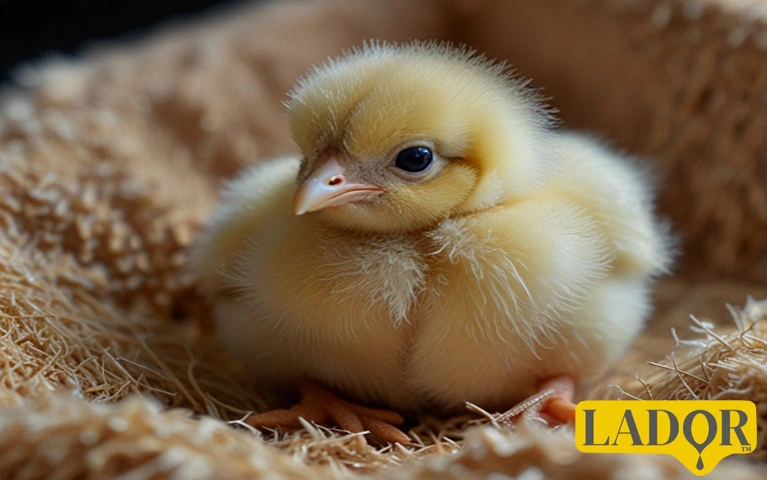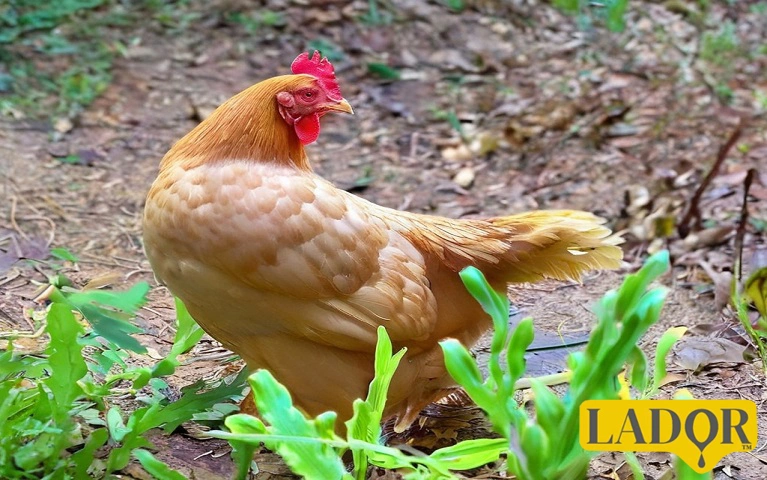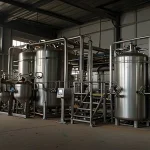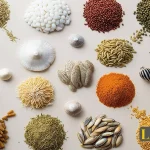Broiler chicken feed is a precise blend of nutrients designed to promote these birds’ rapid growth and overall health. Typically produced in pellet or mash form, these feeds contain a combination of ingredients that fulfill the energy, protein, vitamin, and mineral requirements of growing chickens. Just like starter feed for day-old chicks, broiler chicken feed is of paramount importance and should not be overlooked. For a deeper understanding of broiler chicken feed, we recommend reading this article.
Why is broiler chicken feed important?
Proper nutrition enables chickens to grow faster and reach slaughter weight more quickly. Additionally, high-quality feed results in better-quality meat with superior taste. In large-scale poultry farms, inadequate feeding can lead to diseases, mortality, and irreversible losses. Conversely, with proper nutrition, you can produce more meat from each kilogram of feed.
Key components of broiler chicken feed
- Proteins are Essential for building new body tissues, feathers, and muscles. Protein sources such as soybean meal, fish meal, and meat meal are commonly used in chicken feed.
- Carbohydrates are the primary energy source for the bird’s vital functions. Corn and wheat are the most important carbohydrate sources in chicken feed.
- Fats are Necessary for providing energy and aiding in the absorption of fat-soluble vitamins. Vegetable oils like soybean oil and sunflower oil are included in chicken feed.
- Vitamins and Minerals Crucial for a healthy immune system, bone growth, and other vital processes. Various vitamins and minerals, such as vitamins A, D, and E, calcium, and phosphorus, are added to chicken feed.
Broiler Chicken Feed
Starter Feed: Used for day-old chicks up to about 4 weeks of age and contains high levels of protein and energy.
Grower Feed: Used for chicks from 4 weeks of age onwards and contains less protein compared to starter feed.
Finisher Feed: Used for the last few weeks of the growing period and typically contains enzymes to aid in better feed digestion.
Note: The broiler chicken diet changes throughout the different growth stages. In the early stages, chicks require more protein and energy, while in the later stages, the need for protein decreases.
Broiler Chicken Feed
Proper nutrition plays a vital role in the growth and health of broiler chickens. The broiler chicken diet should contain all the essential nutrients necessary for their growth and development. These nutrients include protein, carbohydrates, fat, vitamins, and minerals.
Important points in broiler chicken feeding
Feed should be made from high-quality and fresh raw materials and adjusted according to the age and growth stage of the chicks. It is important to note that constant access to clean and fresh water is essential for chicks. The feed and water storage area should also be cleaned regularly.

Common Broiler Chicken Breeds
Choosing the right breed is one of the first and most important decisions in broiler chicken farming. Different breeds have different characteristics in terms of growth rate, meat quality, disease resistance, and feed consumption. Some of the most popular broiler chicken breeds include:
- Ross: This breed is one of the most popular commercial breeds due to its rapid growth, high feed conversion ratio, and good meat quality.
- Arian: This is an Iranian breed that has attracted the attention of poultry farmers due to its adaptability to Iranian climatic conditions and good meat quality.
- Cobb: This breed is also a broiler breed and is used due to its rapid growth and good meat quality.
Factors Affecting the Choice of Broiler Chicken Breed
- Different breeds have varying tolerances to different climatic conditions.
- If the goal is to produce high-quality meat, a breed with superior meat quality should be selected.
- Some breeds require specific equipment and facilities, so you must have adequate equipment.
Common Diseases in Broilers
Diseases are one of the biggest challenges in broiler chicken farming. Some of the most common diseases that threaten broiler chickens include:
- Newcastle Disease: This highly contagious viral disease can cause high mortality rates in flocks. Symptoms include respiratory, neurological, and gastrointestinal problems.
- Gumboro Disease: This is also a viral disease that weakens the chicken’s immune system, making them susceptible to other diseases.
- Salmonella: A bacterial disease that can cause diarrhea, weight loss, and even death in chickens.
- Coccidiosis: Caused by protozoan parasites, this disease damages the intestines and causes bloody diarrhea.
- Mycoplasma: A bacterial disease causing, respiratory problems and reduced growth in chickens.
- Parasitic Diseases: Parasitic diseases are one of the most significant challenges in broiler chicken farming. These diseases can reduce growth, decrease egg production, and increase mortality. Types of parasitic diseases include:
- Coccidiosis: Caused by protozoan parasites, this disease damages the intestines and causes bloody diarrhea.
- Intestinal Worms: Intestinal worms can reduce nutrient absorption and cause weight loss.
- Mites and Lice: These parasites feed on the chicken’s blood and cause itching, anemia, and general weakness.
Prevention and Control of Parasitic Diseases
- Regular cleaning of the poultry house, disinfection of equipment, and maintaining good personal hygiene among workers are crucial.
- Anthelmintic drugs can be used for the prevention and treatment of parasitic diseases according to the veterinarian’s instructions.
- Controlling insects that carry parasitic diseases is also very important.
General Methods for Preventing and Controlling Various Diseases in Broilers
- Chickens should be vaccinated against various diseases according to the vaccination program.
- Regular cleaning of the poultry house, disinfection of equipment, and maintaining good personal hygiene among workers are crucial.
- Balanced and high-quality nutrition strengthens the chicks’ immune system.
- The appropriate temperature in the broiler house prevents many diseases.
- The drinking water for chicks must be clean and free of contamination.
Broiler Chicken Rearing Methods
Broiler chicken rearing methods depend on various factors such as breed, rearing goals, and available facilities. Some of the most common methods include:
Traditional Method
In this method, chicks are raised on the floor of the broiler house and use natural bedding such as wood shavings.
Cage System
In this method, chicks are kept in cages with high densities. This method is more popular due to increased production per unit area.
Organic Method
In this method, chemical fertilizers and antibiotics are not used, and chicks are raised in a more natural environment.

Equipment Required for Broiler Chicken Rearing
The equipment required for broiler chicken rearing depends on the rearing method and the size of the flock. Some of the essential equipment includes:
- The broiler house should have adequate ventilation, heating and cooling systems, proper lighting, and proper insulation.
- Waterers and feeders should be placed in sufficient numbers and appropriate locations.
- The ventilation system should bring fresh air into the house and remove polluted air.
- These systems are essential for maintaining the appropriate temperature in the house during different seasons of the year.
- Proper lighting is very important for the growth and development of chicks.
- Disinfection equipment is used to disinfect the house and equipment.
Summary
Broiler chicken feed is of great importance, and paying attention to it will increase the weight of the chicks and improve meat quality.
Ala Sepahan oil factory with the brand Ladorfat is a producer of raw materials for the production of livestock and poultry feed, including broiler feed, colored chicken feed, laying hen feed, duck feed, quail feed, and Golpayegan chicken feed. Also, this factory is involved in the production of various fat powders such as; Pure fat powder, pure fat powder 30-35% and all kinds of oils such as; Bulk poultry oil, hydrogenated sunflower oil and countless other products. For more information, contact our consultants in this company.



